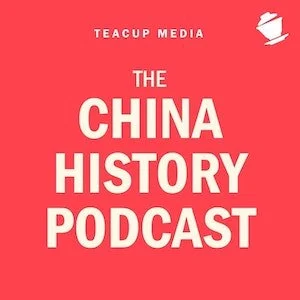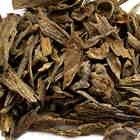Ep. 320 | The History of Taiwan (Part 11)
The focus for this time will be on the main events of 1957-1962. The KMT and the ROC government had been on a wartime footing throughout the 1950s. We'll also look at the infamous KMT repression and martial law as well as the Second Taiwan Strait Crisis. By the end of this episode, Chiang figures out the US is never going to back him in any attempts to recover the mainland and overthrow the CCP. Now Chiang turns his attention to another perceived enemy, opposition parties, and anyone going against the KMT grain.
Listen On Your Favorite Podcast Player
Terms in Episode
| Pinyin/Term | Chinese | English/Meaning |
|---|---|---|
| Chén Chéng | 福佬 | 1898-1965, ROC military leader and one of the main army commanders during the Sino-Japanese War and Chinese Civil War. Alsio served as governor of Taiwan, vice-president of the ROC from 1954-1965 and premier from 1958-1963 |
| Jīnmén | 金门 | Known as Kinmen or Quemoy, it is an island off the coast of Xiamen that is occupied by the ROC. It will be the site of several battles between the ROC and PRC forces. It lies roughly 10 km east of Xiamen, from which it is separated by Xiamen Bay. Jinmen is located 187 km west from the shoreline of the island of Taiwan across the Taiwan Strait. |
| Mǎzǔ | 妈祖 | The Matsu Islans are an archipeligo of 36 idlands in the East China Sea |
| Dàzéxiāng Uprising | 大泽乡起义 | 209 BC that set events in motion that led to the fall of the Qín and the founding of the Hàn |
| Guǎngzhōu | 广州 | Capital of Guangdong Province. Once known as Canton in the West |
| Jiāngxī | 江西 | Province in southeast China |
| Zhōngnánhǎi | 中南海 | The main living and working compound for the top leaders in China, located adjacent to thr Forbidden City in Beijing |
| Dōngdìng Island | 东碇岛/东椗岛 | This island is the southernmost point of Jinmen County, located right off the coast of Longhai City, Zhangzhou, Fujian Province |
| Zhōu Ēnlái | 周恩来 | 1898-1976, great 20th century revolutionary and premier of the PRC from 1949-1976 |
| běnshěngrén | 本省人 | In Taiwan these are the people born and raised in Taiwan and who lived there prior to the Chinese Civil War |
| Dōngníng Kingdom | 东宁王国 | The Dongning Kingdom 1661-1683, led by the Zheng Family (first Zheng Chenggong, then Zheng Jing) |
| Zhèng Chénggōng | 郑成功 | Born Tagawa Fukumatsu and Zhang Sen, Also known as Koxinga 国姓爷 Lord of the Royal Surname. He known in popular Chinese history as Zheng Chenggong (actual name was Zhu Chenggong (the royal Ming Zhu 朱. He lived 1624-1662, and is remembered as a Ming loyalist general who founded the Dongning Kingdom that lasted 1661-1683 |
| Chén Yí | 陈仪 | 1883-1950, was the chief executive and garrison commander of Taiwan Province after Japan surrendered. He acted on behalf of the Allied Powers to accept the Japanese Instrument of Surrender in Taipei Zhongshan Hall on October 25, 1945. He is considered to have mismanaged the tension between the Taiwanese and Mainland Chinese |
| dàlù | 大陆 | The Mainland |
| Guóyǔ | 国语 | The National Language, in Taiwan's case: Mandarin |
| Hoklo | 福佬 | Another way of saying Hokkien people. In the Minnan dialect, it can mean the people, the language and culture of southern Fujian |
| Hakka | 客家 | A Han Chinese subgroup whose ancestral homes are chiefly in the Hakka-speaking provincial areas of Guangdong, Fujian, Jiangxi, Guangxi, Sichuan, Hunan, Zhejiang, Hainan, Guizhou in China, as well as in parts of Taiwan. Unlike other Han Chinese subgroups, the Hakkas are not named after a geographical region in China. The word Hakka or "guest families" is Cantonese in origin and originally refers to the Northern Chinese refugees fleeing social unrest, upheaval and invasions in northern parts of China who migrated to the south. |
| Guóguāng Jìhuà | 国光计划 | Project National Glory….the most serious attempt by the Nationalists to reconquer the mainland |
| Chén Shèng and Wú Guǎng | 陈胜 / 吴广 | The two men who were responsible for launching the Dazexiang Uprising in 209 BC which directly led to other spontaneous uprisings that caused the fall of the Qin Dynasty |
| Qín | 秦朝 | The Qin Dynasty, 221 to 207 BC |
| Jiǎng Jīngguó | 蒋经国 | 1910-1988, Mostly written as Chiang Ching-kuo, he was the son of Chiang Kai-shek and served as president of the ROC from 1978-1988 and premier from 1972-1978 |
| Lǐ Dēnghuī | 李登辉 | 1923-2020, Taiwanese statesman and economist who served as President of the ROC under the 1947 Constitution and chairman of the KMT from 1988 to 2000. He was the first president to be born in Taiwan, the last to be indirectly elected and the first to be directly elected. During his presidency, Lee oversaw the end of martial law and the full democratization of the ROC, advocated the Taiwanese localization movement, and led an ambitious foreign policy to gain allies around the world. Nicknamed "Mr. Democracy", Lee was credited as the president who completed Taiwan's transition to the democratic era. |
| Chén Shuǐbiǎn | 陈水扁 | Born October 12, 1950, a retired Taiwanese politician and lawyer who served as the president of the Republic of China from 2000 to 2008. Chen was the first president from the Democratic Progressive Party (DPP) which ended the KMT's 55 years of continuous rule in Taiwan. |

















his all took place in the final moments of the Warlord Era, right after the Central Plains War. This act perpetrated by warlord Sun Dianying 孙殿英 epitomized the venality of these men.